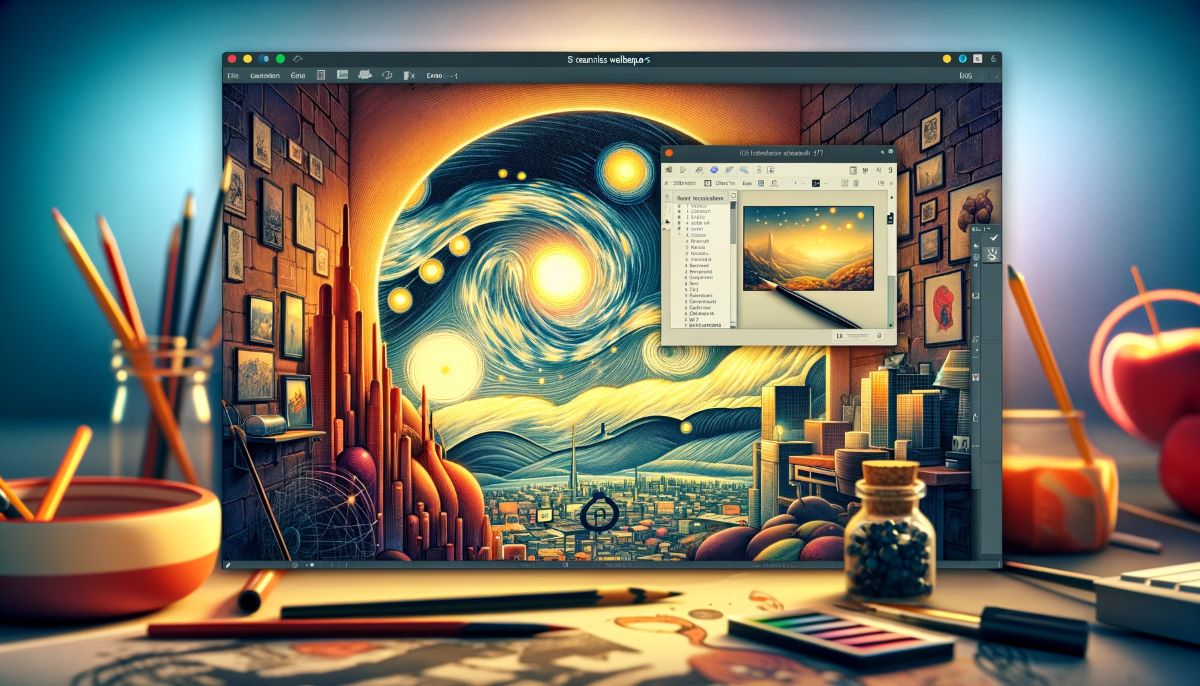The Art of Creating Seamless Wallpapers with Linux Graphics Tools
By Gilbert
Published January 29, 2024
 The Art of Creating Seamless Wallpapers with Linux Graphics Tools
The Art of Creating Seamless Wallpapers with Linux Graphics Tools
In the digital landscape, Linux wallpapers embody the zenith of personal customization, intertwining the realms of art and technology. Linux, with its vast repository of graphics tools, offers a fertile ground for crafting wallpapers that not only captivate the eye but also blend flawlessly with desktop environments or mobile UI elements. This article delves into the artistry and technical prowess required to create seamless wallpapers using Linux graphics tools, spotlighting the integration of background removal and image upscaling techniques.
Understanding the Canvas
The journey to creating seamless wallpapers begins with an understanding of the canvas - your screen. Different devices sport varying screen resolutions and aspect ratios, making the first step in our creative endeavor the selection of a suitable resolution and orientation for our wallpaper.
Selecting the Right Tools
Linux boasts an array of graphics tools, each with its own strengths. For the task at hand, we focus on a few key players:
- GIMP (GNU Image Manipulation Program): The Swiss Army knife of image editing on Linux, perfect for detailed edits and creating seamless patterns.
- Inkscape: Ideal for vector-based designs, offering scalability without loss of quality.
- Krita: A powerful tool for digital painting, great for creating original artwork for wallpapers.
- ImageMagick: A command-line powerhouse for batch processing images, including resizing and format conversion.
The Seamless Design Process
Creating a seamless wallpaper is akin to weaving a tapestry where each thread interlocks without discernible beginnings or ends. Here’s how to achieve this:
1. Conceptualizing Your Design
Start with a concept that complements the UI elements of your desktop or mobile screen. Consider using motifs that reflect your personal style or the aesthetic of your device.
2. Crafting the Base Image
- Using GIMP: Begin with a blank canvas and employ the clone and healing tools to blend edges seamlessly.
- With Inkscape: Create vector designs that can be easily repeated across the canvas without visible seams.
- Through Krita: Paint your base artwork, focusing on smooth transitions at the edges.
3. Removing Backgrounds
For designs incorporating existing images, background removal is crucial. Tools like GIMP offer sophisticated options to select and remove background, leaving you with a clean subject that can be integrated into your wallpaper.
4. Upscaling Images
Image upscaling is essential when working with lower-resolution sources. Tools like GIMP, coupled with plugins or standalone applications like Waifu2x, can enhance image quality without compromising on the seamless aesthetic.
5. Testing and Adjusting
Apply your wallpaper to your device to test how it blends with UI elements. Adjustments may be necessary to ensure elements like icons and widgets are not obscured or clash with your design.
Incorporating Dynamic Elements
Consider incorporating dynamic elements that change with time or system status, adding a layer of interactivity to your wallpaper. This could involve scripting with ImageMagick to modify the wallpaper based on certain conditions, like time of day.
The Final Touches
Final touches involve ensuring your wallpaper is optimized for performance and aesthetics. This includes:
- File Size Optimization: Use tools like ImageMagick to compress the image without a noticeable loss in quality.
- Format Selection: Choose the right format (e.g., JPG for photographs, PNG for images with transparency) for your wallpaper.
Sharing Your Creations
The Linux community thrives on collaboration and sharing. Consider publishing your wallpapers on platforms like GNOME-Look or KDE Store, where others can benefit from your creativity.
Conclusion
The creation of seamless wallpapers on Linux is an art form that marries technical skills with creative vision. Through the judicious use of graphics tools, background remover, and image upscaler, you can craft wallpapers that not only enhance the beauty of your device but also reflect your personal style. The journey from concept to completion is a path of exploration, learning, and, most importantly, creative expression. Embrace the challenge, and let your imagination lead the way to creating seamless masterpieces that elevate the digital canvas.